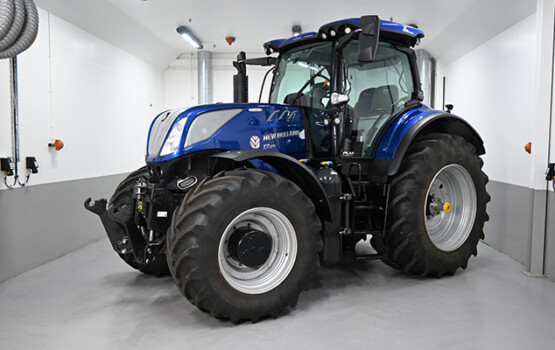Portal for more climate-friendly mobility
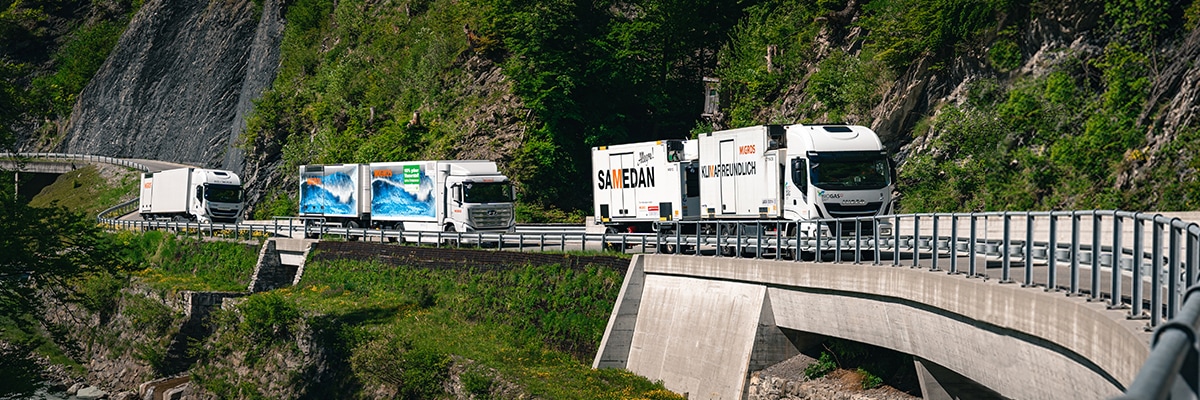
Achieving climate neutrality with biogas
With a concrete roadmap, NGVA Europe shows how more biogas and bio-LNG in heavy transport could be used to meet EU climate targets.
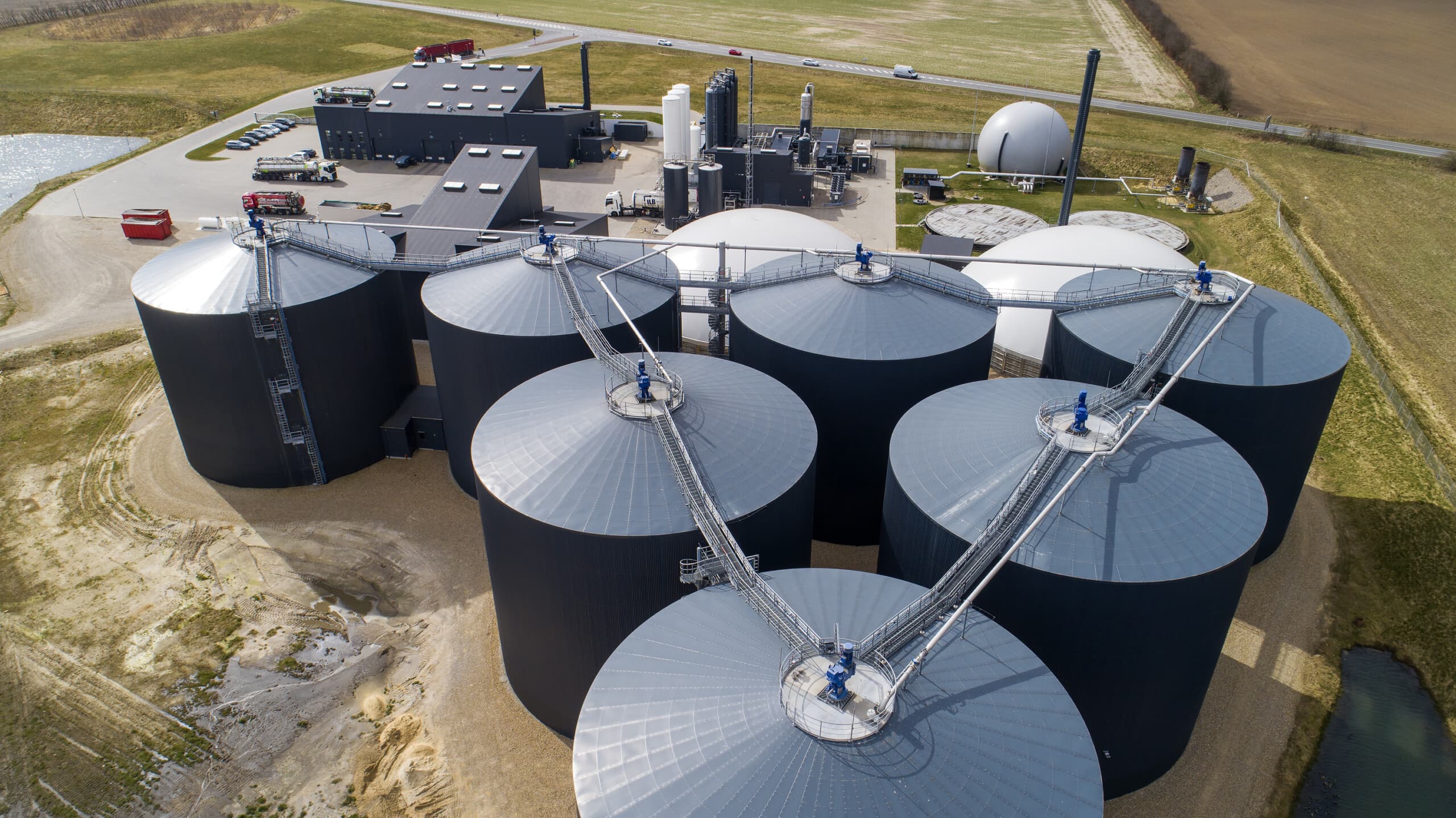 Probably the world’s largest biogas plant at present, operated by Nature Energy, the biogas specialist recently acquired by Shell, in Korskro, Denmark. Source: Nature Energy
Probably the world’s largest biogas plant at present, operated by Nature Energy, the biogas specialist recently acquired by Shell, in Korskro, Denmark. Source: Nature Energy
Heavy lorries that transport large loads over long distances account for only 25% of Europe’s fleet – yet they account for 75% of CO2 emissions. That’s why it is so important to take swift action in this area. And this is precisely where trucks with CNG and LNG drive systems come into play. CNG and LNG trucks run on biogas to reduce CO2 emissions – something that will not be feasible with other alternatives in the foreseeable future. In the midst of a global fuel and energy crisis, carbon neutrality in road traffic simply cannot be achieved with “just” one technology – it will take all of them!
“The balancing act between net-zero emissions, energy security and the competitiveness of EU long-distance transport is a mammoth task,” says Timm Kehler, President of the European Gas Vehicles Association (NGVA Europe). “If we don’t see a faster spread of renewable and carbon-neutral gaseous fuels, the ‘Green Deal’ is doomed to fail.” So in order to meet the net-zero targets set by the EU, the share of biogas must be continuously increased in line with the estimated demand in the heavy goods vehicle sector.
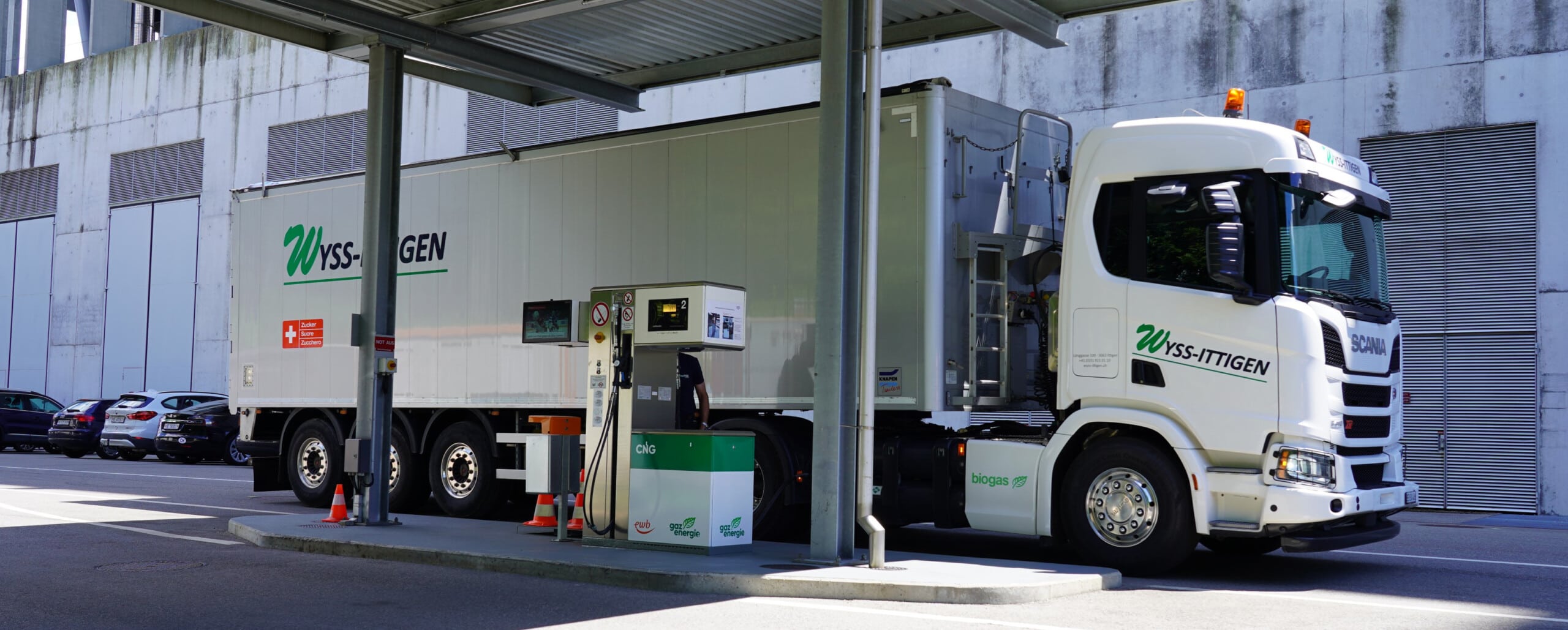 With biogas or bio-LNG in the tank, even heavy trucks are almost CO2-neutral on the road. Source: CNG-Mobility.ch
With biogas or bio-LNG in the tank, even heavy trucks are almost CO2-neutral on the road. Source: CNG-Mobility.ch
With an addition of 55% biogas by 2030, 75% by 2040 and 100% by 2050, which would then mean a total of 15 billion cubic meters of biogas. This timetable – or the biogas roadmap as a counterpart to an existing electric roadmap, so to speak – comes at exactly the right time: the European Commission will shortly present its proposal to revise the CO2 Regulation for heavy-duty vehicles, which includes new targets for 2035/2040 and takes into account renewable fuels, including biogas and bio-LNG in addition to synthetic fuels, e-fuels and hydrogen.

“Carbon neutrality doesn’t depend on any one particular technology: what matters is the speed at which it’s introduced,” explains Matthias Maedge, Secretary General of NGVA Europe. “Trucks with CNG or LNG engines solve the CO2 problem here and now, not in the future. Our industry is ready to push ahead with the introduction of bio-LNG and biogas. All we need now is to get policymakers to follow suit.”
The General Secretary of the European Biogas Association (EBA), Giulia Cancian, adds: “The NGVA Europe roadmap is a crucial commitment to the much-needed de-fossilisation of transport in the EU. Biogas is the most competitive and readily available renewable gas solution.” Europe’s value chains are ready to tap into huge, sustainable biogas potential which will reach around 151 billion cubic metres per year by 2050. “Sustainable biogas will enable the decarbonisation of various sectors, including transport,” says the EBA secretary-general.
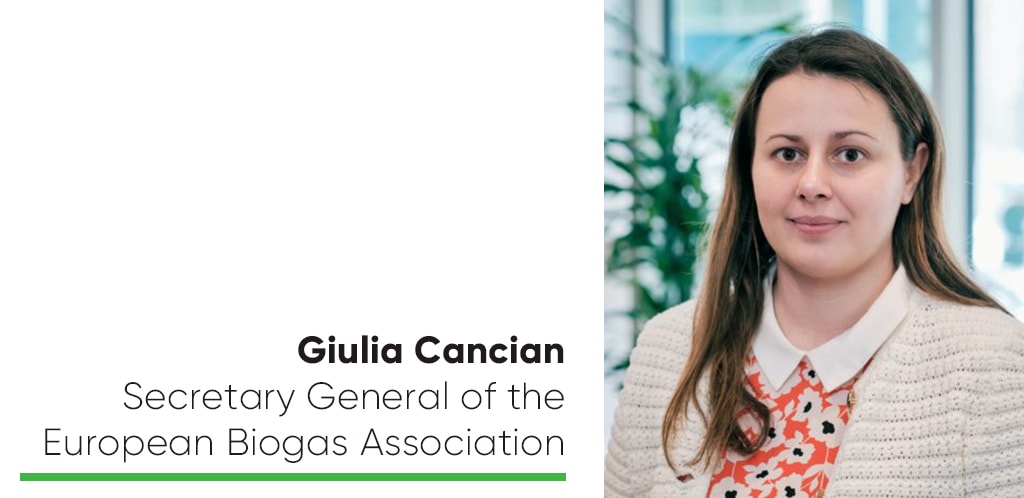
Further diversification with renewable gas will massively accelerate the greening of the truck sector, as opposed to any unilateral focus on legislation that only measures exhaust emissions. Rapid scalability of available solutions is crucial to CO2 reduction, with the use of biogas and bio-LNG currently being the easiest way to achieve the ambitious “Fit for 55” target by 2030. Meeting such a target in full would lead to savings of 42 million tonnes of CO2 per year by 2050. (pd/jas, 13 December 2022)
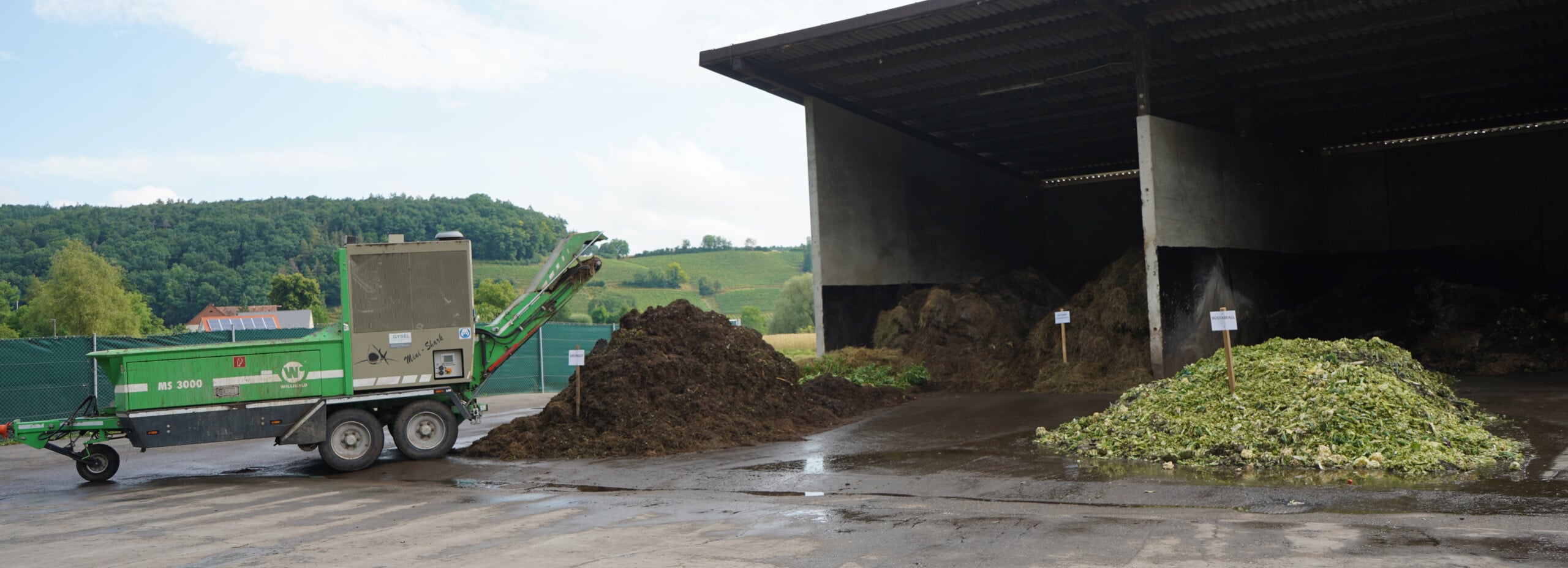
The potential for biogas mass and biogas utilisation is huge and should therefore be developed in a more targeted manner in the coming years – also in Switzerland. Source: CNG-Mobility.ch
You might also be interested in
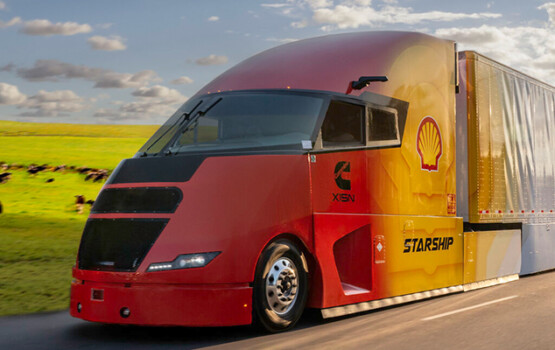
Shell Starship on record hunt
